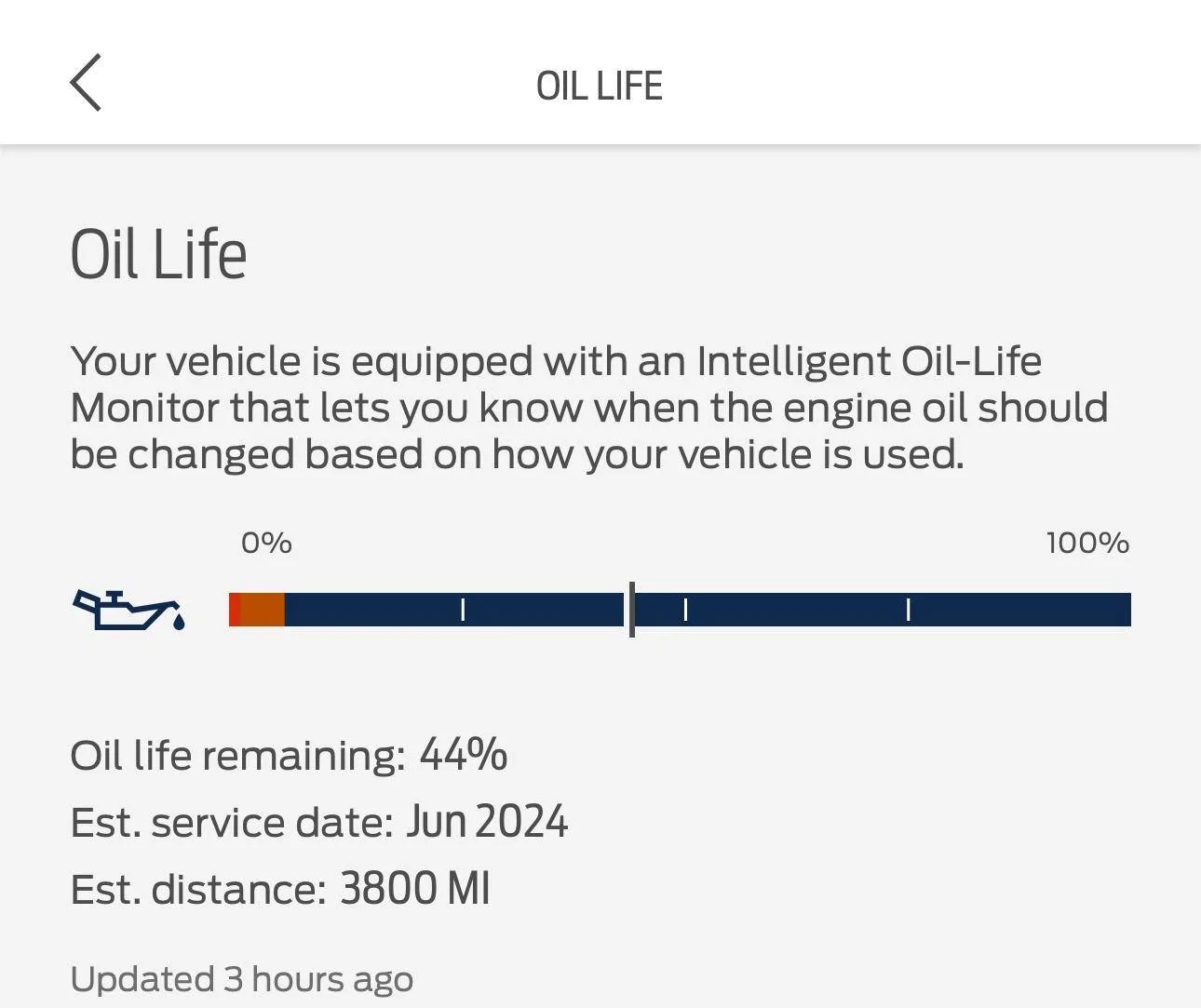You're quoting something confusingly named similarly, but a different feature.OK, maybe I'm being old and grumpy, but using the IOLM seems unnecessarily complicated and restrictive. One FAQ:
Is there a driving distance requirement to receive oil life estimates?
"In order to receive the estimated due date and distance remaining, your vehicle must have been driven for 150 trips for the driving pattern to be detected and the estimates to be considered valid. If the driving pattern is not predictable, the service estimates will not be displayed."
Fortunately, we don't drive much, so the oil is changed every year. No need to mess with the IOLM.
The IOLM in your vehicle runs constantly.
The "FordPass Oil Life Service Reminder" is a complementary related feature that, rather than just displaying the percentage of oil life remaining, sends telematics data back through FordPass connect (if enabled with telematics data exchange permission granted).
Based on this data, if there is enough of it and it is predictable (trips are wildly different to the point where margin for potential error is unacceptable), in addition to displaying an oil life remaining percentage (which comes directly from the IOLM), on the "oil life screen" of FordPass it will display an estimated service date (month and year). For me, the oil was changed at ~3000 miles, I have ~8500 miles on the car now (so 5300 miles since last oil change), and my oil life is 44%, estimated oil change July 2024, additional mileage 3800... so based on my driving patterns, basically FordPass thinks my oil will be fine up to 10,000 miles, but not the upper range of 12,500 for normal operating conditions:

This is all fun for me to keep in the back of my head, but I'm in cold Northeast winters. The car will be started more often remotely, idling for more time, at colder temps. The starts of my drives will be the engine working while the engine isn't fully at heat yet. The IOLM will account for this, feed the data back to Ford via Fordpass, and based on my new trend for oil life, update the oil change estimate. I would expect this date to move up sooner based on winter driving conditions.
The key part is that the IOLM itself doesn't require FordPass. My 2015 Ford Fusion had IOLM but no FordPass Connect modem. When the oil life got to 5%, change oil soon message on the gauge cluster screen. Your BS will do the same, even without 150 trips.
Also of note: "150 trips" for the FordPass time/date estimate beyond % oil life is not "we're driving 4 hours to Grandma's house and back" is one trip... it's when the car is started engine on, moves, and stops. If you're a delivery driver and start and stop to deliver ten houses, that's ten trips. If you're doing errands in town one day and go to the pharmacy, post office, and grocery store, that's four trips, assuming no stops are walking distance and you stop the engine (home -> pharmacy, pharmacy -> post office, post office -> grocery store, grocery store -> home).
Sponsored
